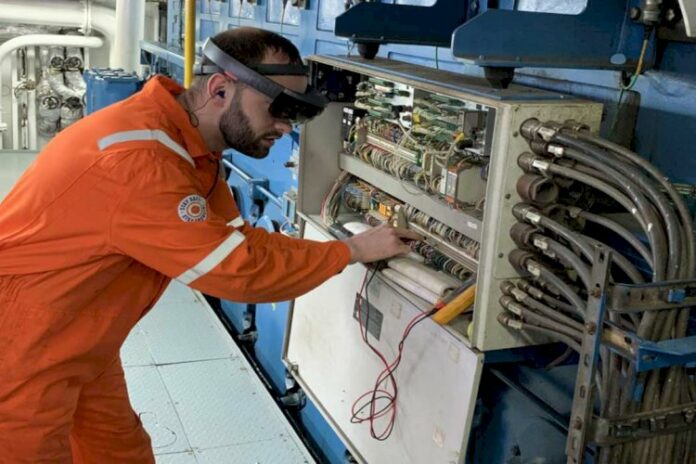Anthony Veder and Bureau Veritas have successfully completed a pilot for “live remote class surveys” using a wearable device and augmented reality technology.
The success of this pilot opens up the way for fully remote class surveys and Anthony Veder and Bureau Veritas have the ambition to further roll out this service in the following months
This new way of performing a survey, where the surveyor does not have to travel towards a vessel, not only improves the efficiency of surveys, but also provides a good solution in times when it is difficult to travel towards vessels such as during the current COVID-19 crisis.
Bureau Veritas and Anthony Veder concluded that this form of live, remote surveys are able to reach the same quality level as traditional onboard surveys but are much more efficient. In addition, Anthony Veder emphasizes that this technology will also be used for remote assistance, troubleshooting and providing support to vessels in remote areas.
Benne Engelen, CIO at Anthony Veder says:
“The development of remote surveys and remote assistance perfectly fits our innovation roadmap in which we actively strive towards smart ship solutions, closing the distance between our people onboard, in our office and our partners. The successful pilot marks an important milestone in the digitalization of the maritime industry and our ambition to further develop the efficiency, sustainability and safety standards of our company”.
In addition, Wouter Boogaart, Digital Development Manager and leading the project, explains:
“Executing surveys and providing assistance remotely will result in a faster response time and better service when external expertise is needed. Also greatly reducing lead times, as it will bring down the need to travel towards a vessel and eventually also reduce the associated CO2 emitted during these travels.”
During the pilot, a scenario including three conditions of class was executed onboard one of Anthony Veder’s vessels. The pilot took place on the bridge, cargo control room, engine control room and engine room. The pilot was executed using a wearable augmented reality device enabling a live video and audio connection with the Anthony Veder office in Rotterdam and Bureau Veritas office in Paris.
A remote class surveyor guided the crew onboard through the different class items using the live connection and evidence was gathered by taking pictures and recordings using the wearable device.



